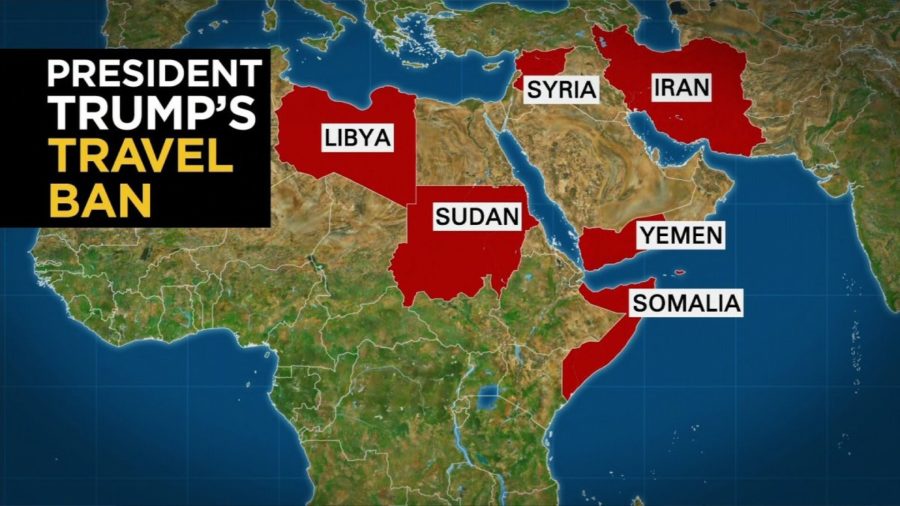Students Weigh in on President Trump’s Travel Ban
December 13, 2017
The Supreme Court has allowed the third version of the Trump administration’s travel ban into effect while legal challenges against it continue. The court’s orders mean that the administration can fully enforce its new restrictions on travel from eight nations, six of them being Muslim. Most citizens of Iran, Syria, Libya, Yemen, Somalia, Chad, Venezuela, and North Korea are banned from entering the United States. “I have family over in some of those countries, so I don’t agree with the ban because not every Muslim is bad, and just because one Muslim may have done harm does not mean that they all will,” says freshman Oawas Hobbi.
While some may be for it, a majority of people are against this travel ban. “I believe that we should be taking refugees and helping them instead of banning them,” says art teacher Gabriela Peller, “People are dying over there in those countries.”
“Why would we ban Middle Eastern countries from entering the U.S.? Racial prejudice and Islam phobia should not take over our country, we should be reinforcing tolerance and immigration as a good thing and teach it as people of America” says freshman Kendra Levendusky.
The restrictions vary in detail, but most citizens of those countries won’t be allowed to come to the United States. Others are not restricted from working, studying, or even vacationing here. The travel ban does not apply to holders of a green card or to foreigners already in possession of a valid visa. “I agree with the travel ban because it is not necessarily banning a certain race or group, it is banning the travel to a place that is not the safest” says a student who has requested to stay anonymous, “It is to stop hostile actions or ideas from spreading here, as well as putting in place for the welfare of the American people.”
The ban is being enforced for now until a final decision is made. The Supreme Court is expected to rule soon and the ban will remain active until then.


![Rakim’s celebration with attorney upon hearing not guilty verdict [Courtesy of NBC News]](https://whhspatriotpress.com/wp-content/uploads/2025/04/Rocky-aint-guilty.webp)



